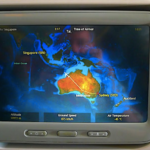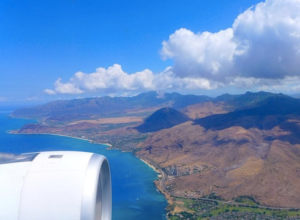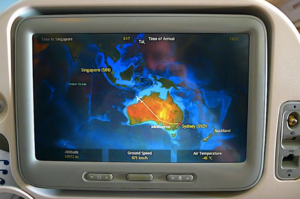 Airlines struggling to survive a pandemic that has brought the travel industry to its knees are facing a new threat – an environmental campaign that wants to slap taxes on frequent flyers and ban frequent flyer reward programs completely.
Airlines struggling to survive a pandemic that has brought the travel industry to its knees are facing a new threat – an environmental campaign that wants to slap taxes on frequent flyers and ban frequent flyer reward programs completely.
Calls are mounting for a frequent flyer levy – a tax that rises each time anyone flies in a year. Some radical campaigners want flying incentive schemes involving “air miles” or “air points” banned outright.
Loyalty is vital for airlines, facing years of slow recovery after disastrous pandemic-inspired losses.
Most agitation against flying is based in Europe. Campaigners believe frequent flyer levies would be broadly popular because they target the rich, who fly the most, the BBC reports.
Analysis suggests a small minority of frequent flyers dominate air travel in almost all countries with high aviation emissions.
Greenpeace supports the tax, the BBC reports, and wants air miles banned because “it encourages frequent flying”.
A UK-based climate action group called Possible says: “International travel is grinding to a halt in the wake of the coronavirus outbreak. In response airlines are calling for public bailouts, so they can go back to business as usual as quickly as possible. The airline bosses want a blank cheque. But we believe any public support should protect what really matters: people and the climate.”
According to research by Possible on frequent flyers:
In the US: 12% of people take 66% of flights.
In the UK: 15% of the population takes 70% of flights (57% don’t fly abroad at all).
In India: 1% of households takes 45% of flights.
In Indonesia: 3% of households takes 56% of flights.
In Canada: 22% of the population takes 73% of flights
In the Netherlands: 8% of people take 42% of flights.
In China: 5% of households takes 40% of flights
The UK Citizens’ Assembly last year supported the principle that people who fly more should be taxed more.
 Alethea Warrington, from Possible, told the BBC that “a small minority of frequent flyers take an unfair share of the flights.
Alethea Warrington, from Possible, told the BBC that “a small minority of frequent flyers take an unfair share of the flights.
“While the poorest communities are already suffering the impacts of a warming climate, the benefits of high-carbon lifestyles are enjoyed only by the few. A lot of people travel. But only the privileged few fly often.”
A generation ago, the Concorde faced similar resistance, with developing countries refusing overflight rights to an aircraft that conveyed a handful of wealthy people at supersonic speed. Passengers all travelled first class (the only class on Concorde), quaffing Champagne and dining on caviar in the sky. Meanwhile, sonic booms from Concorde would affect poor villagers below and terrify their livestock, critics argued.
Debate continues about how much air travel contributes to global warming. You can’t switch aircraft engines over to battery power using current technology, though plane makers are working on it.
Climate change is becoming a pressing issue. A group of eminent Australian scientists, looking at a possible temperature rise of 3℃ this century, has forecast global sea levels would rise up to 80 centimetres, drowning much of Australia’s coastline. Yields of key crops would fall by between 5% and 50%. Heatwaves in Queensland would happen up to seven times a year, lasting an average 16 days – and the Great Barrier Reef would no longer exist. At 3℃ of global warming, Australia’s present-day ecological systems would be unrecognisable, the scientists concluded.
Written by Peter Needham



















…yes stop frequent flyers program the better…. and also stop low cost flights… not to mass travel… no to over tourism…